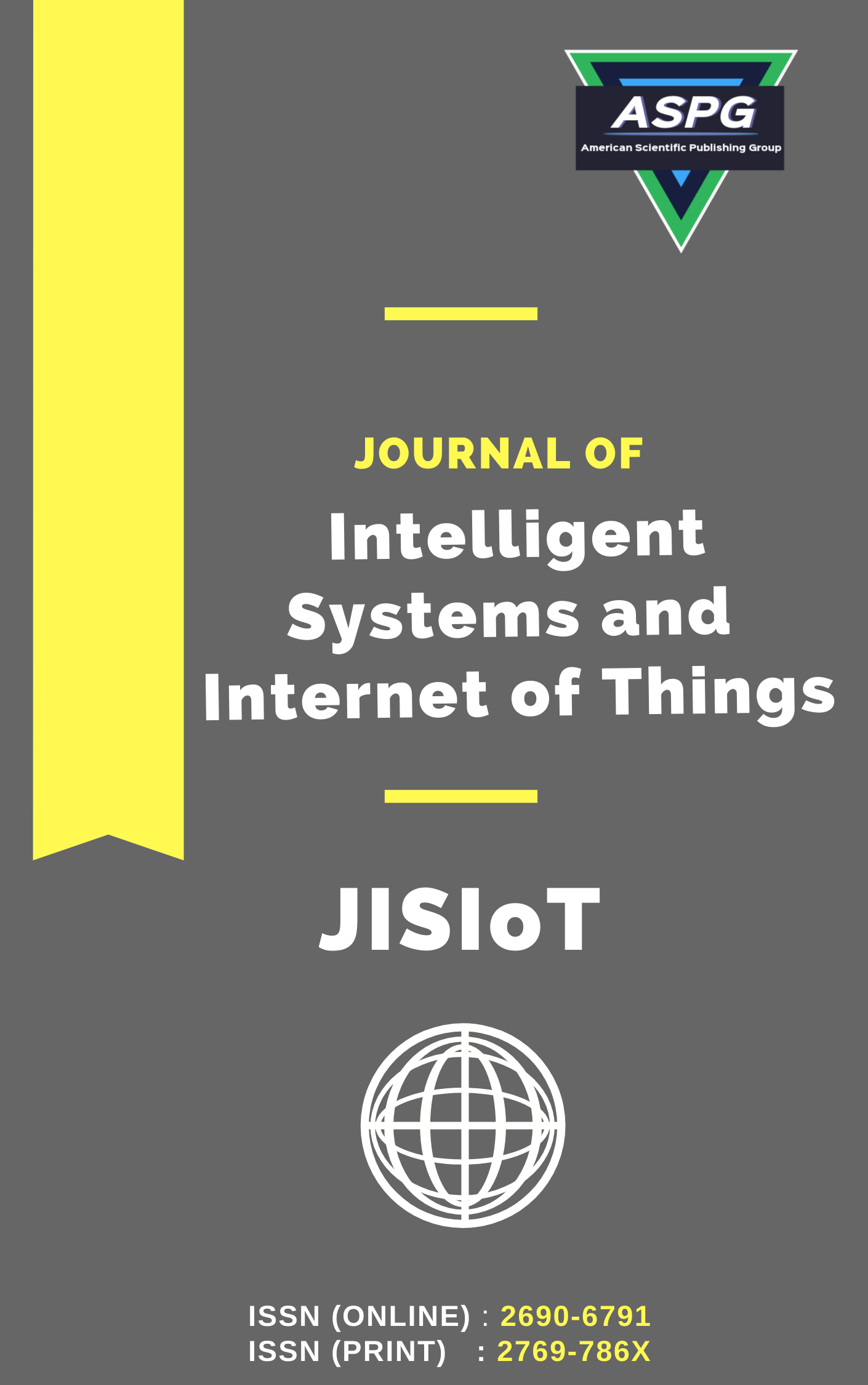

Volume 1 , Issue 1 , PP: 61-69, 2020 | Cite this article as | XML | Html | PDF | Full Length Article
Mahmoud M. Ismail 1
The energy challenge in IoT refers to the significant energy consumption of IoT devices, which can lead to sustainability issues, shorter battery life, and increased operating costs. IoT devices are known for their high energy consumption, and optimizing their energy usage can have a significant impact on sustainability and cost. Machine learning (ML) can learn from data and patterns to predict and control energy consumption in IoT systems, making them more energy efficient. The main contribution of this paper is the establishment of a novel deep learning framework for enhanced predictive modeling of energy consumption in IoT networks to help realize Energy-efficient IoT systems. our framework applies recurrent processing to capture long-term relations in the energy consumption of IoT appliances. Then, the self-attention mechanism is devised to help the model to focus on important predictive features. Simulation experiments against the competing ML baselines demonstrate the predictive capability of our framework.
Machine Learning , IoT , Energy Consumption, Sensors
[1]. Javed, A., Larijani, H., & Wixted, A. (2018). Improving energy consumption of a commercial building with IoT and machine learning. IT Professional, 20(5), 30-38.
[2]. Ventura, D., Casado-Mansilla, D., López-de-Armentia, J., Garaizar, P., López-de-Ipina, D., & Catania, V. (2014). ARIIMA: a real IoT implementation of a machine-learning architecture for reducing energy consumption. In Ubiquitous Computing and Ambient Intelligence. Personalisation and User Adapted Services: 8th International Conference, UCAmI 2014, Belfast, UK, December 2-5, 2014. Proceedings 8 (pp. 444-451). Springer International Publishing.
[3]. Chafii, M., Bader, F., & Palicot, J. (2018, April). Enhancing coverage in narrow band -IoT using machine learning. In 2018 IEEE Wireless Communications and Networking Conference (WCNC) (pp. 1-6). IEEE.
[4]. Mahdavinejad, M. S., Rezvan, M., Barekatain, M., Adibi, P., Barnaghi, P., & Sheth, A. P. (2018). Machine learning for Internet of Things data analysis: A survey. Digital Communications and Networks, 4(3), 161-175.
[5]. Azmoodeh, A., Dehghantanha, A., Conti, M., & Choo, K. K. R. (2018). Detecting crypto-ransomware in IoT networks based on energy consumption footprint. Journal of Ambient Intelligence and Humanized Computing, 9, 1141-1152.
[6]. Shafique, M., Theocharides, T., Bouganis, C. S., Hanif, M. A., Khalid, F., Hafız, R., & Rehman, S. (2018, March). An overview of next-generation architectures for machine learning: Roadmap, opportunities and challenges in the IoT era. In 2018 Design, Automation & Test in Europe Conference & Exhibition (DATE) (pp. 827-832). IEEE.
[7]. Georgiou, K., Xavier-de-Souza, S., & Eder, K. (2017). The IoT energy challenge: A software perspective. IEEE Embedded Systems Letters, 10(3), 53-56.
[8]. Serra, J., Pubill, D., Antonopoulos, A., & Verikoukis, C. (2014). Smart HVAC control in IoT: Energy consumption minimization with user comfort constraints. The Scientific World Journal, 2014.
[9]. Wei, C., & Li, Y. (2011, September). Design of energy consumption monitoring and energy-saving management system of intelligent building based on the Internet of things. In 2011 international conference on electronics, communications and control (ICECC) (pp. 3650-3652). IEEE.
[10]. Luis M. Candanedo, Veronique Feldheim, Dominique Deramaix, Data driven prediction models of energy use of appliances in a low-energy house, Energy and Buildings, Volume 140, 1 April 2017, Pages 81-97, ISSN 0378-7788.
[11]. Zuo, Y., Tao, F., & Nee, A. Y. (2018). An Internet of things and cloud-based approach for energy consumption evaluation and analysis for a product. International Journal of Computer Integrated Manufacturing, 31(4-5), 337-348.
[12]. Kim, M., Jun, J., Kim, N., Song, Y., & Pyo, C. S. (2018, October). Sequence -to-Sequence model for building energy consumption prediction. In 2018 International Conference on Information and Communication Technology Convergence (ICTC) (pp. 1243-1245). IEEE.
[13]. Ullah, I., Ahmad, R., & Kim, D. (2018). A prediction mechanism of energy consumption in residential buildings using hidden markov model. Energies, 11(2), 358.
[14]. Khan, S., Paul, D., Momtahan, P., & Aloqaily, M. (2018, April). Artificial intelligence framework for smart city microgrids: State of the art, challenges, and opportunities. In 2018 third international conference on Fog and Mobile Edge Computing (FMEC) (pp. 283-288). IEEE.
[15]. Ejaz, W., Naeem, M., Shahid, A., Anpalagan, A., & Jo, M. (2017). Efficient energy man agement for the internet of things in smart cities. IEEE Communications magazine, 55(1), 84-91.
[16]. Ouyang, Z., Sun, X., Chen, J., Yue, D., & Zhang, T. (2018). Multi-view stacking ensemble for power consumption anomaly detection in the context of industrial internet of things. IEEE Access, 6, 9623-9631.
[17]. Kim, J. (2015). Energy-efficient dynamic packet downloading for medical IoT platforms. IEEE Transactions on Industrial Informatics, 11(6), 1653-1659.
[18]. Sahana, M. N., Anjana, S., Ankith, S., Natarajan, K., Shobha, K. R., & Paventhan, A. (2015, December). Home energy management leveraging open IoT protocol stack. In 2015 IEEE Recent Advances in Intelligent Computational Systems (RAICS) (pp. 370-375). IEEE.
[19]. Sehati, A., & Ghaderi, M. (2018, April). Online energy management in IoT applications. In IEEE INFOCOM 2018-IEEE Conference on Computer Communications (pp. 1286-1294). IEEE.